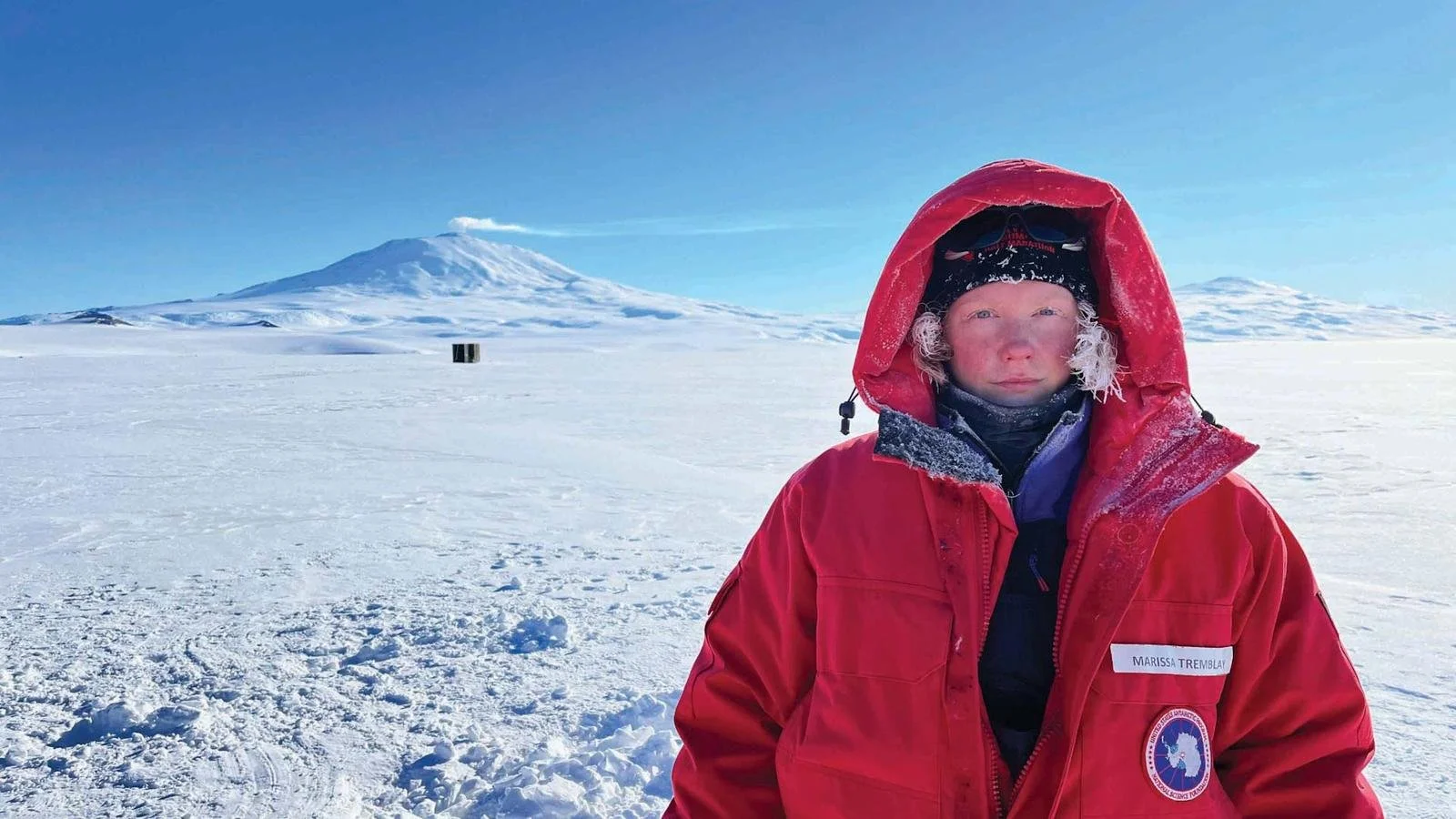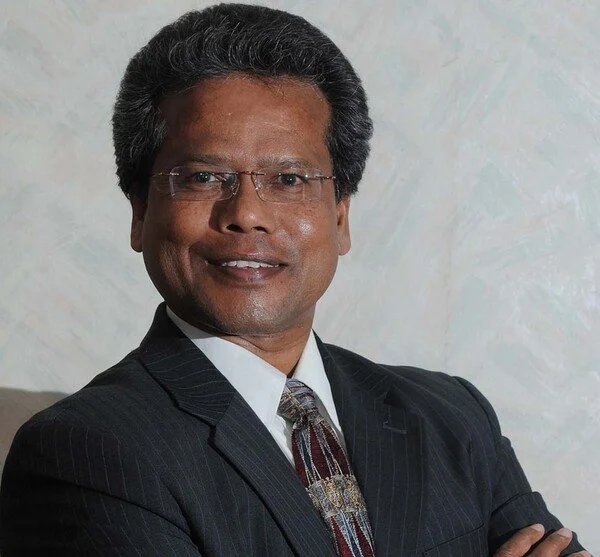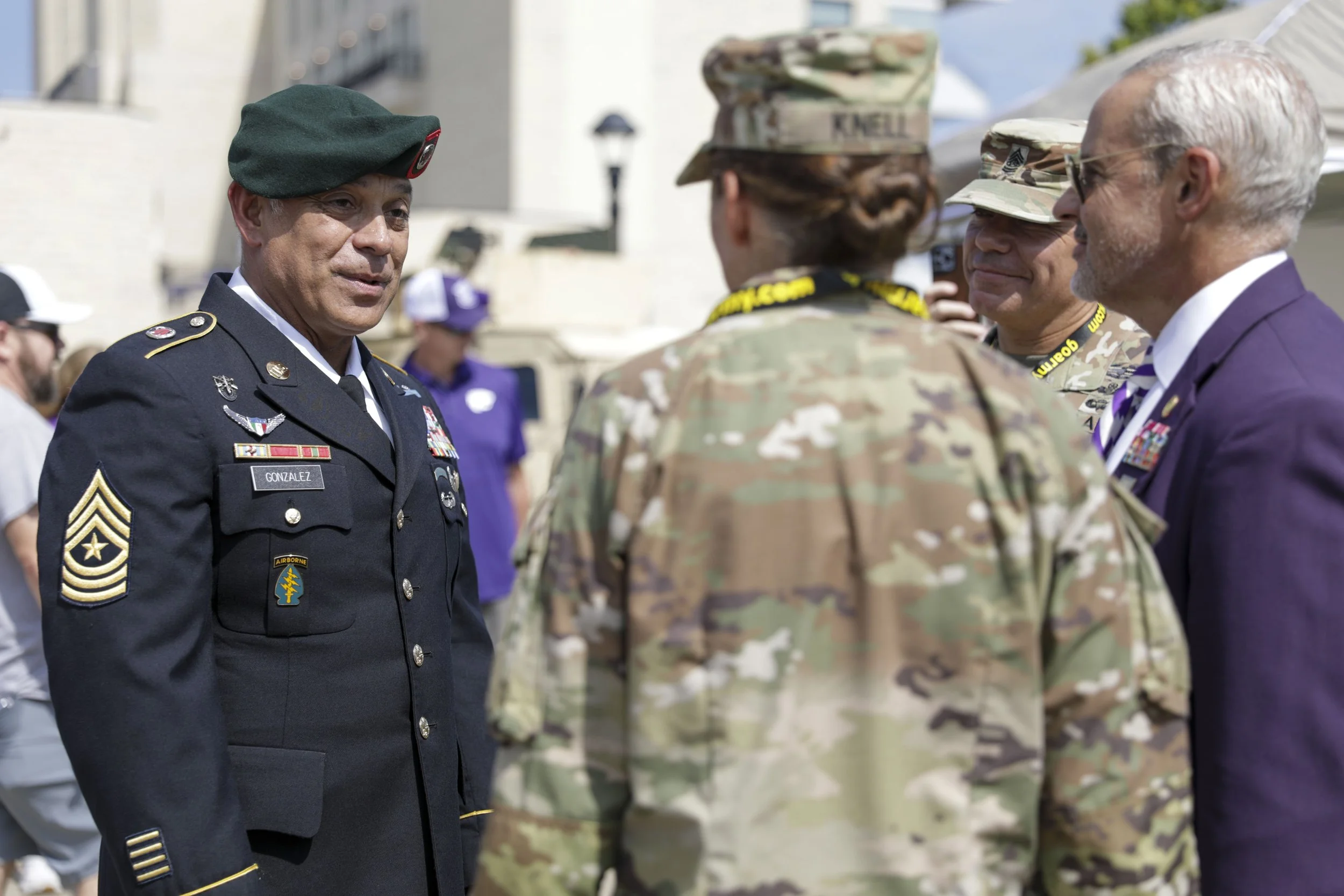K-State’s oldest living football player turns 100
As a boy, Russell “Doc” Hardin ’46 dreamt of becoming a veterinarian. He never thought he’d have an opportunity to pursue that dream. Raised on a farm north of Knightstown, Indiana, during the Depression, there was a time when the family’s only income came from milking their 20 head of cattle — a chore Hardin started at age 9.
Hardin remembers the country veterinarian who tended to the family herd. “I always liked him,” Hardin said. “He would come out and doctor a cow, and I was curious about how he knew what was wrong. I was always interested in becoming a vet.”
In 1939, Hardin enrolled in Purdue University in West Lafayette, Indiana, to study animal sciences. There were only 10 vet schools in the country at the time — K-State’s program was the sixth, established in 1905. Purdue wouldn’t offer a degree in veterinary medicine until 1957, but the money wasn’t there for Hardin’s family to afford it anyway. He figured animal sciences was the next best thing. He was only six credit hours away from completing his degree in 1942 when, as he puts it, “Uncle Sam took me.”
Drafted into the Army, Hardin was sent to Camp Robinson in Little Rock, Arkansas, for basic training and then on to Fort Bliss in El Paso, Texas. As Hardin was preparing to deploy overseas, he was called in front of a four-star general.
“I’d never seen a four-star general in my life,” he said. “My first thought was, ‘Oh, boy, what have I done now?’”
The general told Hardin that the Army was in need of physicians, dentists and veterinarians, and Hardin’s training in animal sciences qualified him for veterinary school at K-State. He would be headed to Manhattan, Kansas, on the first train in the morning. Hardin was so excited at the prospect of attending vet school he saluted the general with both hands.
The training was arduous. A five-year veterinary medicine program was packed into 37 months. Still in the Army, he drilled with his fellow soldiers every evening after class. He also realized another dream of playing football at K-State where the squad voted him team captain.
“It was an honor to get that job,” Hardin said. “I think they respected me, and they trusted my judgement to do what was right.” One of his favorite gameday memories? A brisk November day in 1944 when the Wildcats beat the Jayhawks 24-18. “I blocked the kick that won that game,” he said.
Hardin was recruited by the Detroit Lions who offered him $300 per game. He passed on pro football and instead moved to Lebanon, Indiana, where he followed the advice of a professor who suggested he introduce himself to the town veterinarian.
“He told me, ‘There’s no use for you in this town,’” Hardin said. “Well, that ticked me off, and the next day, I hung out my shingle.”
Hardin started his practice from a storeroom in the back of a filling station that he rented for $25 a month. After five years, he built his own veterinary clinic.
Upon retirement in 1978, he sold his practice to his colleagues. Hardin celebrated his 100th birthday in July with a drive-by party organized by the Lebanon Rotary.
Looking back, Hardin said, “If I had to do it all over, I would go the same route.”
Of the 10,000 soldiers stationed at Fort Bliss, he was the only one sent to Manhattan. The rest of his outfit was later killed in Burma. Hardin chokes up talking about it.
“I’ve been blessed,” he said. “I am one happy old man.”
This story appeared in the Winter 2020 issue of K-Stater magazine.











